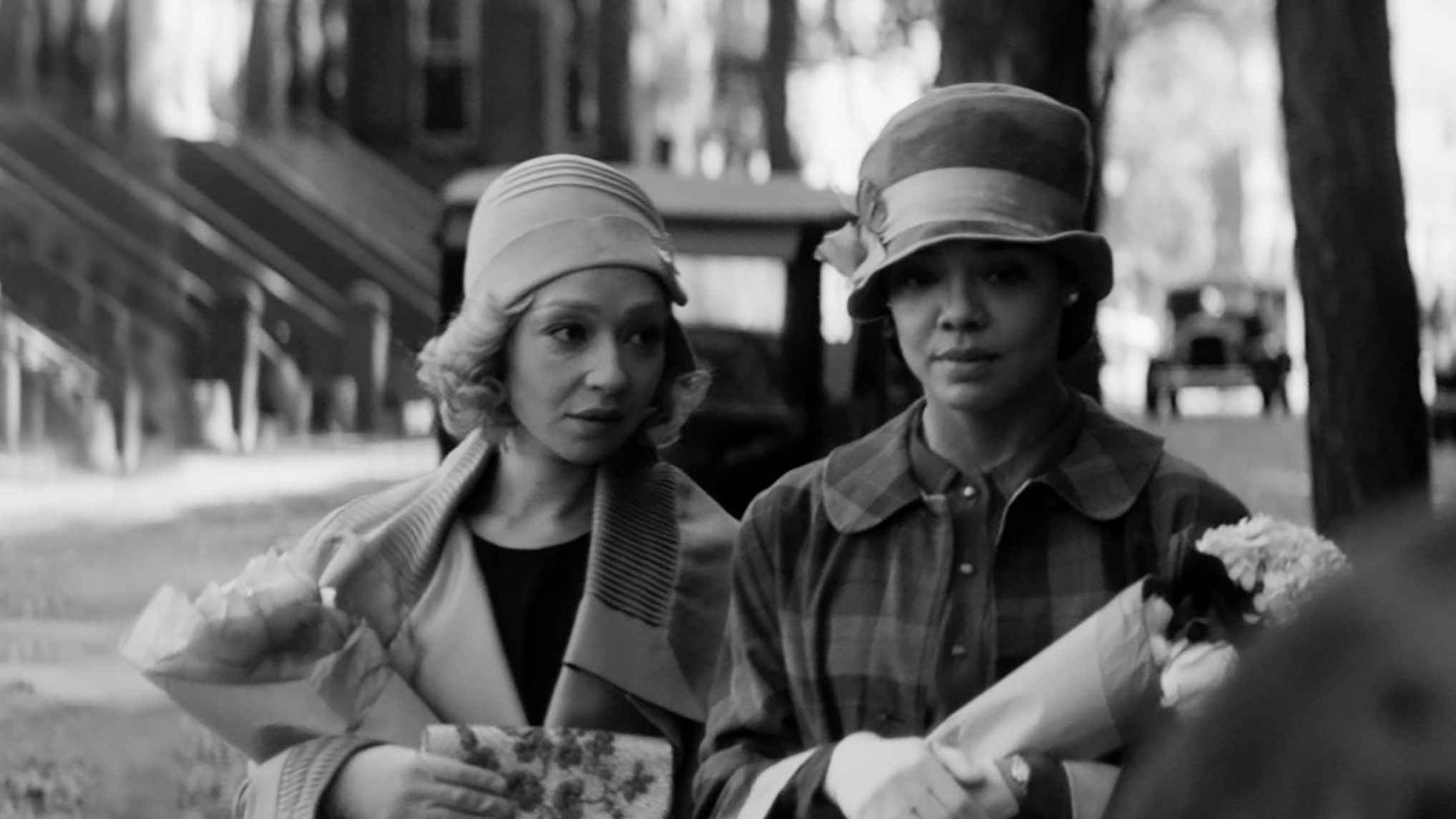

Identity is a slippery thing; it’s both self-constructed and imposed upon us by the world in which we live. Passing, writer/director Rebecca Hall’s adaptation of Nella Larsen’s 1929 novel explores these themes via its central characters, a pair of mixed-race friends who reconnect in 1920s Harlem. The divine Tessa Thompson plays Irene—Reenie to just about everyone—a married, well-to-do mother of two who is active in the borough’s vibrant civic and cultural life. She is, as she tells her husband Brian (André Holland)—and perhaps herself—satisfied with the life she’s made. She has everything she ever wanted.
But a chance encounter at the beginning of the film upends all of that. While passing for Caucasian at the white-only restaurant atop a tony hotel, Reenie catches the eye of an old childhood friend Clare (Ruth Negga). Unlike Reenie, Clare isn’t just passing for the afternoon. She’s married to a white man (Alexander Skarsgård) who knows nothing about her heritage and is openly racist.
Sensing the knife’s edge upon which Clare walks, Reenie is initially reluctant to reconnect with her old friend. But Clare is persistent, visiting Reenie’s home and eventually insinuating herself into Reenie’s life. Clare’s secret, of course, has taken a toll on her, and she finds comfort and release among Harlem’s Black community at the dances, jazz clubs and social functions she attends with Reenie and Brian. At the same time Clare’s presence begins to take a toll on Reenie. Everyone—including her sons and especially Brian—is charmed by this beautiful, vivacious interloper, and Reenie’s sense of self is profoundly destabilized by Clare’s ability to effortlessly traverses what are supposed to be inviolable spheres. Why, she wonders, is it not enough for Clare to simply enjoy the benefits of whiteness? Must she also have Reenie’s world as well?
Both Negga and Thompson are profoundly charismatic performers, and they anchor Passing with pathos and empathy. Negga, perhaps best known for playing the tough-as-nails Tulip on AMC’s Preacher, is playing against type here. She gives Clare a wounded, though still dangerous Daisy Buchannan vibe: the needy, unpredictable beauty who can’t help but leave destruction in her reckless wake. “I’m not safe,” she tells Reenie, and she’s not just referring to her marriage.
Thompson, meanwhile, is also restrained, her voice little more than a sigh as she quietly unravels. The film is told from her perspective, and she makes Reenie’s confusion and desperation palpable. She both fears and fears for Clare. But she’s also jealous of Clare’s magnetism, and perhaps envies her. There’s also the hint of attraction between the two women. Thompson lets this riot of conflicting emotions flicker in Reenie tense gaze while maintaining her perfect composure to the very end.
As Reenie grows increasingly doubtful, first-time director Hall amps up the dreamlike imagery in what is an already intimate and at times claustrophobic film. Hall has said that the film’s composition—it was shot in black and white, in 4:3 aspect ratio—is an homage to the films of the 1920s. But Passing also recalls David Lynch’s Eraserhead, luxuriating in its uneasy atmosphere as it closes in on a devastating conclusion.














